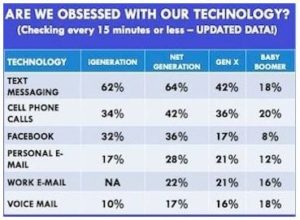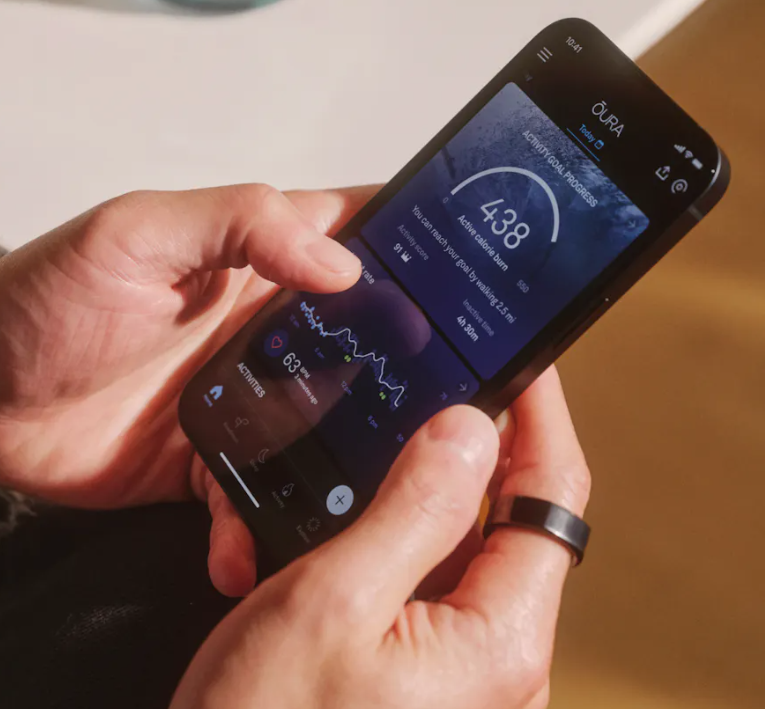by Cheryl Sklar
 Happy Halloween! Tis the season to be scared by spooks and goblins and phantoms and zombies! But have you ever had random feelings in your pocket, thinking that your cell phone is vibrating – when, in fact, it may not even be in your pocket? Or you check because you know you got a text or notification but, alas, nothing is there!
Happy Halloween! Tis the season to be scared by spooks and goblins and phantoms and zombies! But have you ever had random feelings in your pocket, thinking that your cell phone is vibrating – when, in fact, it may not even be in your pocket? Or you check because you know you got a text or notification but, alas, nothing is there!
There is not a lot of research yet but more studies are being conducted because more people are experiencing this strange phenomenon. It happens more often to younger people, those who have grown up more dependent on their smartphones and social media. One scientist speculated that this vibration sensation is triggered by electrical signals, touching on the surrounding nerves and giving a feeling of a vibration – like a small electromagnetic interference with some speaker or radio or tower nearby. It could also be simply your pants rubbing against your leg or your chair dragging against the floor, and your mind interprets that as a vibration.
Larry Rosen, a professor of psychology at California State University, wrote a book entitled iDisorder. In this book, he hypothesized that smartphone users are so primed for, and attentive to, the sensation of their phone going off that they simply experience the occasional false alarm. He conducted a study of four generations of Americans and how connected (or obsessed) they are with their various technologies. It also shows the level of anxiety that people experience, based on their attachments to their phones. Here is a small sampling of what he discovered:
The average mobile phone user checks his/her device every 6.5 minutes during the day – or 150 times during their waking hours. How often do you check yours?
Rosen also conducted a study to see how anxious people got when they could not check their phones as often as they would like.
It is interesting to notice that what appears to be happening in our outward behavior can be traced to neurotransmitters in our brain. A high level of a neurotransmitter called serotonin in the brain results in increased positive affect or, perhaps, reduced feelings of depression. Those who were more anxious about not being able to check in with Facebook and/or text messages showed more symptoms of major depression and an assortment of other personality disorders.
While phantom vibrations may be nothing but mildly bothersome, they may be potentially decreasing the flow of serotonin, and thus causing greater depression and increased anxiety.
So what should we do to help curb our technology addiction – and make those phantom vibrations stop? Simply moving your phone to a different location on your person can help reduce those phantoms. We can (and should) retrain ourselves and reduce these anxiety reactions. It is not good for us to be so keyed up that we will not be able to focus or even rest.
- Take a short walk in nature or just go outside
- Do a short mindful meditation session
- Exercise
- Listen to music
- Sing
- Practice a foreign language
- Read a joke book
- Talk to someone in person or on the phone
Actually you probably already know what it takes to calm YOUR brain. About every 60 – 90 minutes do something for 10 minutes away from technology and your anxiety levels should decrease. Here’s a great article that Richard wrote last year about just that – Taking a Break. Another hint is to only access your electronic communications websites (e-mail, texts, social media) on a schedule, say every 15 minutes, and then turn them off during the down times. Unless it’s an emergency, nobody will freak out if you don’t get back to him or her within 15 minutes. If you are concerned about missing a “real” emergency from someone, arrange a special communication channel for that person and leave that one active while silencing all the others.
For more fascinating information about how technology is impacting our lives, read Rewired: The Psychology of Technology.
 Cheryl Sklar With over 25 years of experience in sales, marketing and general coordination, Cheryl uses her varied organizational skills to enhance the behind the scenes workings of Network 1. She strives to help things run smoothly wherever she can.
Cheryl Sklar With over 25 years of experience in sales, marketing and general coordination, Cheryl uses her varied organizational skills to enhance the behind the scenes workings of Network 1. She strives to help things run smoothly wherever she can.
csklar@network1consulting.com or 404.997.7641
Network 1 Consulting is a 16-year-old, IT Support company in Atlanta, GA. We become – or augment – the IT department for law firms and medical practices. Our IT experts can fix computers – but what our clients really value are the industry-specific best practices we bring to their firms. This is especially important with technology, along with regulations and cyber threats, changing so rapidly. We take a proactive approach to helping our clients use technology to gain and keep their competitive advantage.









